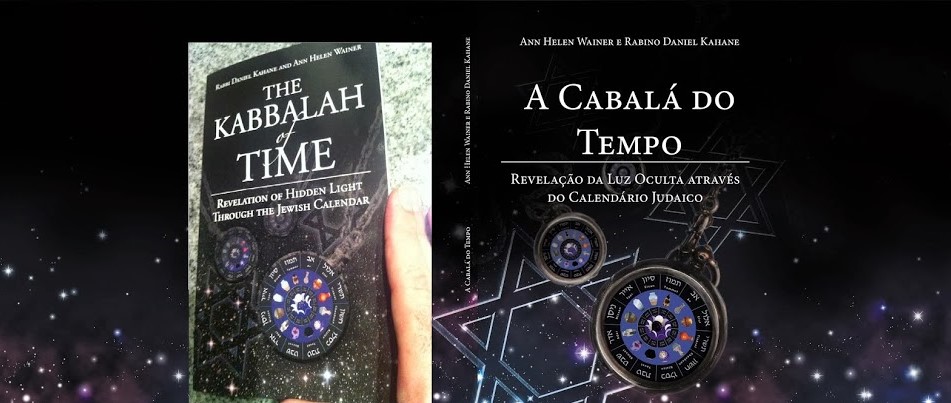SONG OF SONGS:
14. My dove, in the clefts of the rock, in the
coverture of the steps, show me your appearance, let me hear your voice, for
your voice is pleasant and your appearance is comely.'
15. Seize for us the foxes, the little foxes, who
destroy the vineyards, for our vineyards are with tiny grapes.
16. My beloved is mine, and I am his, who grazes among
the roses.
70 SOULS THAT DESCENDED TO EGYPT: Tzochar
TALMUD SHEVUOTH: Daf 11 - Ketoret (Incense)
BOOK OF JEREMIAH: Chapter 11
Week 11 in
the Jewish calendar is the week of Yud Kislev, which celebrates the release and
redemption of the Mitteler Rebbe. The first verse from Song of Songs for this
week is from G-d’s perspective. The second and third one are from the Jewish
people’s. The verses continue the theme of this month: the spiritual and
physical struggle against Greek domination, and the miraculous victory over it.
The first
verse speaks of the Jews as a faithful dove, crying out to G-d in purity and
despair, in the face of the enemy. Rashi interprets this to mean the crying out
of the Jews by the Red Sea, which revealed the inner essence of the Jewish
people. This is similar to the hidden flask of pure oil stamped with the seal
of the Kohen Gadol found on Chanukah. (Interestingly, the voice of the Jewish
people, which is the cry of the dove, is described as pleasant, Arev, which
also spells the word for Orev, raven, the animal of Week 12 in Book 1)
The second
verse speaks of little foxes who destroy vineyards. As explained in Book 1, the
fox is a reference to the destruction of the Temple. Rashi makes a reference to
the fact that the Egyptians would throw our male infants into the Nile. In the
end, the Egyptians themselves were the ones inundated and drowned. Wine (like
oil) is a reference to wisdom and Torah. The Greeks came to destroy our
knowledge at a time when the people’s level of knowledge was lacking, like
infants and tiny grapes.
The third verse
speaks of the intimate and all-encompassing relationship between the Jewish
people and G-d. Rashi states: “He demanded all His needs from me... All my
needs I demanded of Him, and not of other deities.” This is something
rationalist (as well as the pagan) Greeks could not understand.
Of the
seventy souls of the Jewish people that descended to Egypt, the eleventh
mentioned is Tzochar, spelled Tzadi, Chet, Reish. Tzochar also appears in the
Torah as the name of the father of Ephron the Hittite, who sold the Ma’arat
HaMachpelah to Avraham in Hebron in order for him to bury Sarah. Tzohar, with a
Heh, was a light in the Ark. Perhaps Tzochar is mentioned here to represent the
difficulties (similar to Abraham’s) of dealing with other nations occupying the
Land of Israel, as well as the light of Chanukah. The Tzohar, like the Temple’s
Menorah, not only served internal illumination purposes, but external purposes
as well.
Daf Yud
Aleph (Folio 11) of Shvuot discusses the holiness of the ketoret and of Hekdesh.
The Ketoret is associated with the number 11 as explained in Book 1.
Chapter 11
of the Book of Jeremiah contains a similar theme to the above. In the verses,
Hashem tells the prophet to speak to Jerusalem (See Week 11, Book 1, about
speaking “to the heart of Jerusalem”) and mentions, again and again, the
“fathers,” showing the continuity from generation to generation, similar to
that of the Alter Rebbe and the Mitteler Rebbe. Another repeated term
is“covenant,” Brit, which as mentioned before, is something the Greeks strongly
opposed:
2. Hearken to
the words of this covenant, and you shall speak to the men of Judah and to the
inhabitants of Jerusalem.
3. And you
shall say to them, so said the Lord God of Israel; Cursed be the man who will
not hearken to the words of this covenant,
4. Which I
commanded your forefathers on the day I took them out of the land of Egypt, out
of the iron furnace, saying: Hearken to My voice and do them, according to all
that I will command you, and you shall be to Me for a people, and I will be to
you for a God.
5. In order
to establish the oath that I swore to yourforefathers to give them a land
flowing with milk and honey as of this day. And I replied and said, "Amen,
O Lord."
6. And the
Lord said to me; Proclaim all these words in the cities of Judah and in the
streets of Jerusalem, saying: Hearken to the words of this covenant and you
shall do them.
7. For I
warned your forefathers on the day I brought them up from the land of Egypt
until this day, warning early every morning, saying: Hearken to My voice.
8. But they
did not hearken, neither did they bend their ears, and they went, each man
according to the view of his evil heart, and I brought upon them all the words
of this covenantthat I commanded to do, and they did not do.
9. And the
Lord said to me; A conspiracy has been found among the men of Judah, and among
the inhabitants of Jerusalem.
10. They have
returned to the iniquities of their first forefathers, who refused to hearken
to My words, and they followed other gods to worship them; the house of Israel
and the house of Judah broke My covenant that I made with their forefathers.
